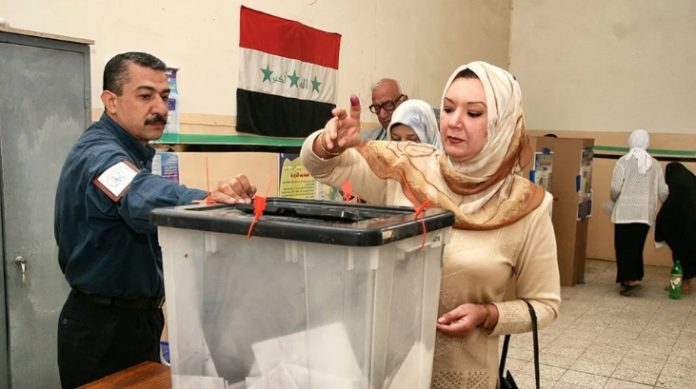Iraq holds its first provincial council elections in a decade on Monday. The ruling Shi’ite Muslim alliance is likely to extend its hold on power amid a boycott by populist cleric Moqtada al-Sadr, its main political rival.
The election lays the groundwork for parliamentary elections in 2025 that will determine the balance of power in a country where groups with close ties to Iran have gained ground in politics and the economy in recent years.
The vote also acts as a test of the new Iraqi democracy installed by the US after the overthrow of Saddam Hussein in 2003.
Voter apathy is growing among a predominantly young population that believes it sees no benefit from Iraq’s vast oil wealth, much of which is misdirected or plundered in a country that ranks among the world’s most corrupt.
Just over 16 million Iraqis registered to vote on Monday, but that’s down from the 2021 parliamentary elections, when 22 million people were eligible to vote, according to authorities. Turnout then was 41 per cent of those eligible to vote.
Preparing a cup of sweet tea by his kiosk across the street from a polling centre in central Baghdad, Ali Aswad, 39, said that spending even five minutes voting was too much time wasted. He noted:
I won’t vote any more. They have been telling us democracy will help improve our lives but nothing happened. Elections are a competition of words without actions and democracy is a big lie.
Local elections were last held in 2013. They were postponed because of the war with Islamic State militants, who took over much of Iraq but were eventually defeated.
Sadr’s Shi’ite rivals, who blocked his attempt to form a government after his victory in the 2021 parliamentary elections, are likely to take control of most local councils, especially in the predominantly Shi’ite southern provinces.
This will further consolidate the power of the ruling Shiite alliance close to Iran, known as the Coordination Mechanism, and strengthen their power through access to state oil wealth that can be spent on local projects and services.
The alliance will already form the largest bloc in parliament after members of Sadr’s party quit. Sadr, a populist who has positioned himself as a fierce opponent of Iran and the United States, said the election would reinforce the dominance of a corrupt political class.
15 of Iraq’s 18 provinces are holding elections for 285 council members, whose duties include appointing powerful provincial governors and overseeing local administration.
Elections in semi-autonomous Kurdistan, which includes three provinces, are scheduled to take place as scheduled next year.
